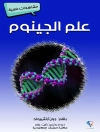This book presents a detailed discussion on the direct interactions of plants and microorganisms in the rhizosphere environment. It includes fifteen chapters, each focusing on a specific component of plant-microbe interactions, such as the influence of plants on the root microbiome, and the downstream effects of rhizosphere microbial dynamics on carbon and nutrient fluxes in the surroundings. As such, the book helps readers gain a better understanding of diversity above the ground, and its effect on the microbiome and its functionality.
Table des matières
Bacterial Endophytes: Diversity, Functional Importance, and Potential for Manipulation.- Rhizosphere Carbon Turnover from Cradle to Grave: The Role of Microbe–Plant Interactions.- Root–Soil–Microbe Interactions Mediating Nutrient Fluxes in the Rhizosphere.- Diazotrophic Nitrogen Fixation in the Rhizosphere and Endosphere.- Root Microbiome Structure and Microbial Succession in the Rhizosphere.- Rhizosphere Legacy: Plant Root Interactions with the Soil and Its Biome.- Rhizosphere Microbiome and Soil-Borne Diseases.- Root Disease Impacts on Root-Rhizosphere Microbial Communities.- Newly Introduced or Modified Genes in Plants Potentially Modulate the Host Microbiome.- Rhizosphere Plant–Microbe Interactions Under Abiotic Stress.- Arbuscular Mycorrhizal Fungi Interactions in the Rhizosphere.- Microbial–Faunal Interactions in the Rhizosphere.- Inter-Organismal Signaling in the Rhizosphere.- Molecular Mechanisms of Plant–Microbe Interactions in the Rhizosphere as Targets for Improving Plant Productivity.- Inoculation Effects in the Rhizosphere: Diversity and Function.
A propos de l’auteur
Dr Vadakattu V.S.R. Gupta is a Senior Principal Research Scientist at the CSIRO Agriculture & Food unit at the Waite campus in Adelaide, South Australia. He has more than 20 years of experience in fundamental and applied, field-based functional microbial ecology research in soil and water ecosystems in Australia, Canada and India. His research interests include unravelling the complexities of microbial diversity, functional capability and resilience of microbe-soil-plant interactions for disease suppression and plant nutrition as a key for developing sustainable agricultural systems. His research has identified changes in soil biology in genetically modified crop systems and the impacts of herbicides on soil biological functions. He has published over 100 refereed articles in scientific journals and books and developed soil biology research investment priorities for government and industry funding bodies in Australia. He was awarded the 2015 Prescott Medal by the Soil Science Society of Australia for his outstanding contribution to Soil Science.
Dr. Anil K. Sharma is a Professor at the Department of Biological Sciences, CBSH G.B. Pant University of Agriculture & Technology Pantnagar. He was a Visiting Scientist at the University of Basel, Switzerland from July 2003 – November, 2003, and at the University of Helsinki, Finland in 2013. He completed his post-doctoral studies at GSU, Louisiana, USA, and he has extensive research and teaching experience. He is a reviewer for DBT, DST, and MOEF projects, and for journal such as the Biocontrol Journal, International Journal of Agriculture, and Microbiology. He holds three patents in the field of plant biology and microbiology and has received a number of prestigious grants. His laboratory is involved in various international collaborations, and he has published more than 84 research articles, 32 review articles and two books with renowned publishers. He has presented his research on several internationally acclaimed platforms.












